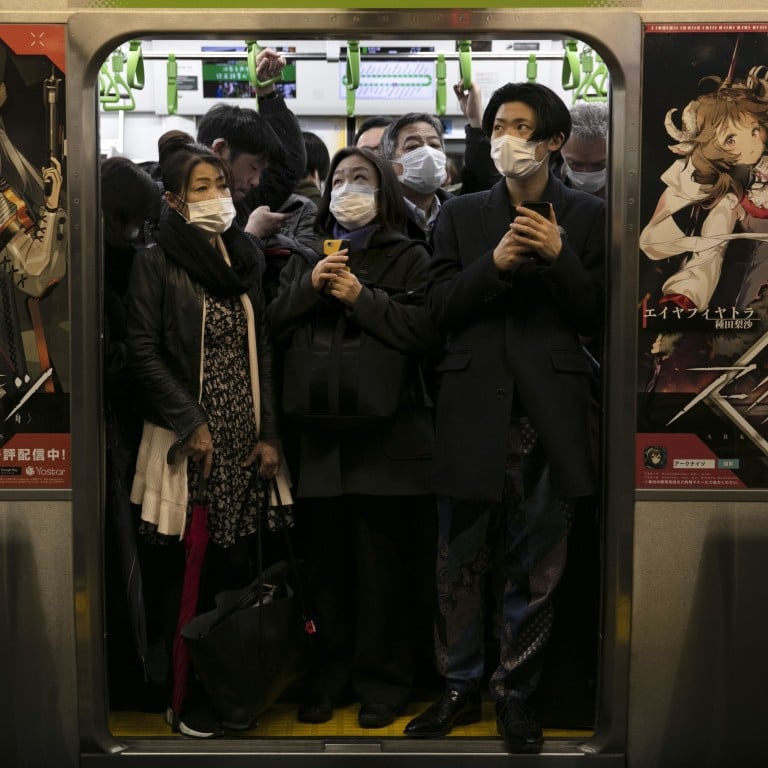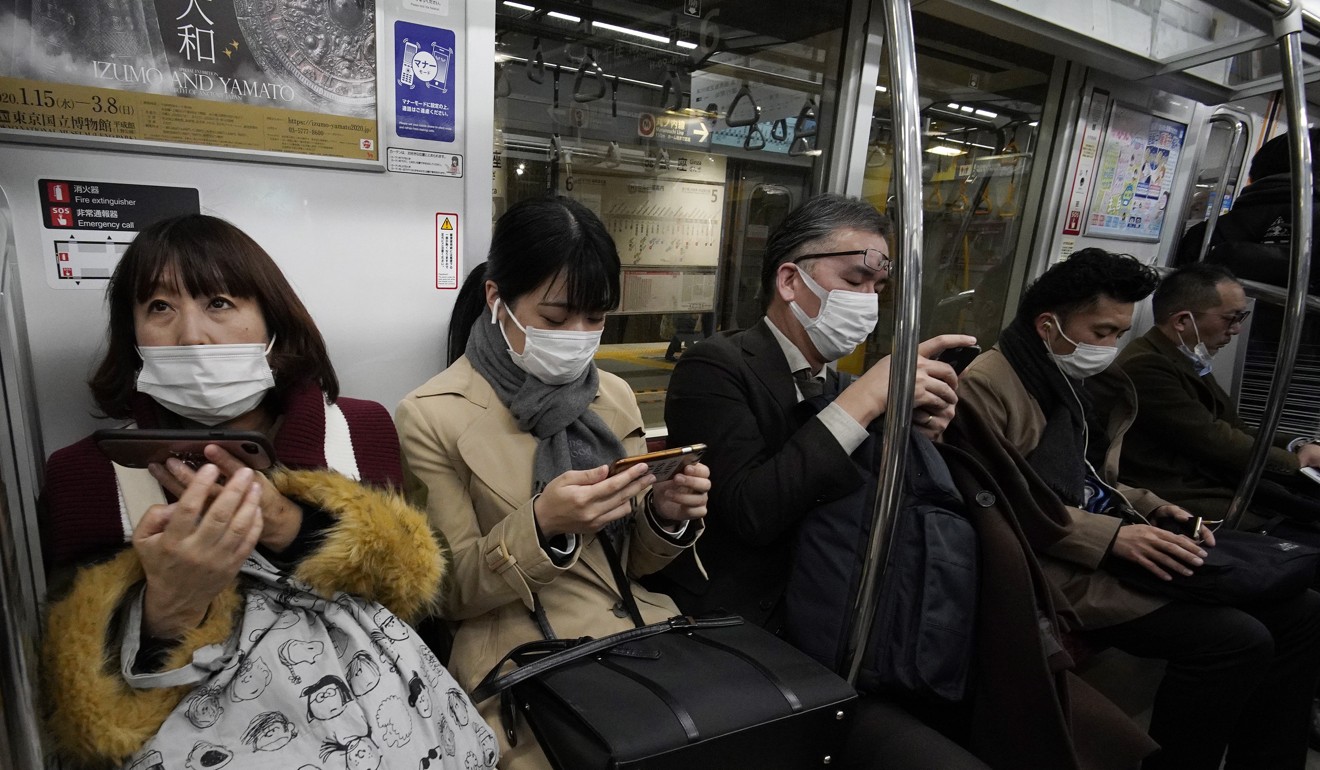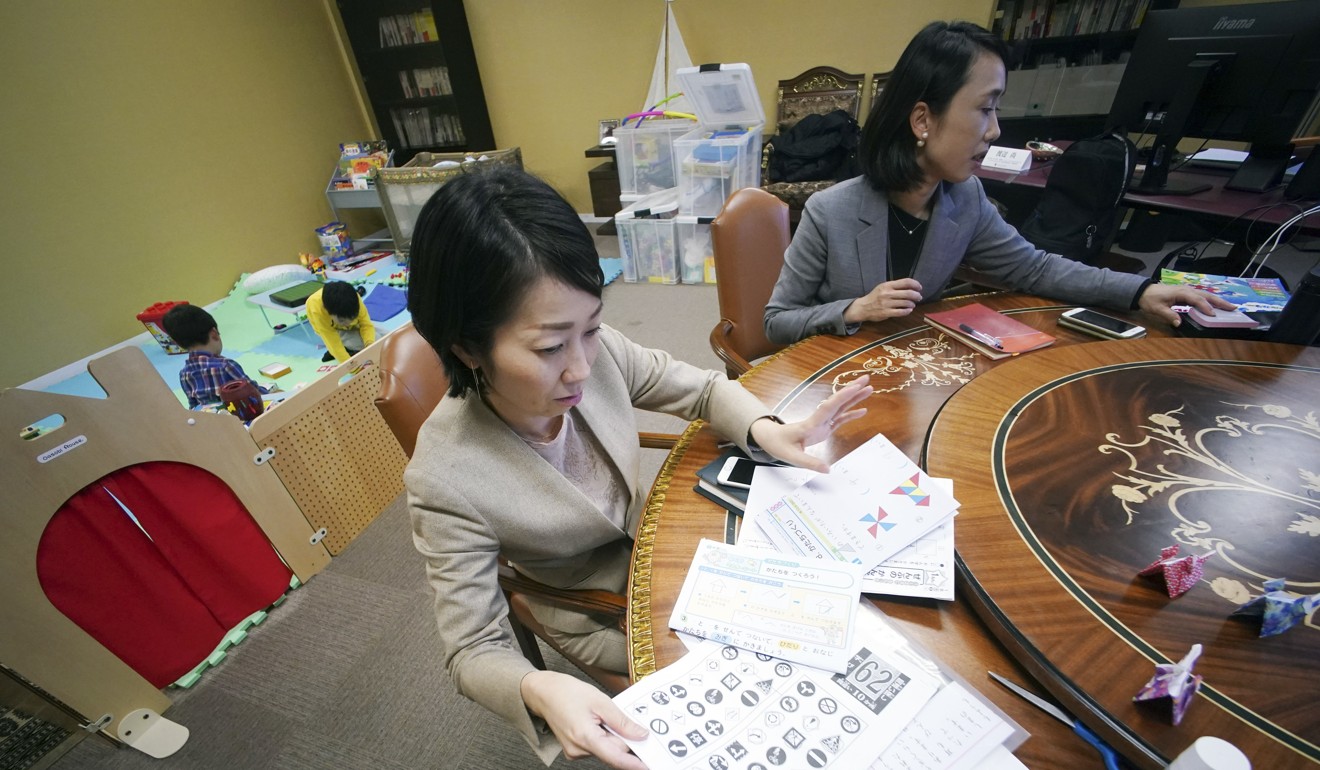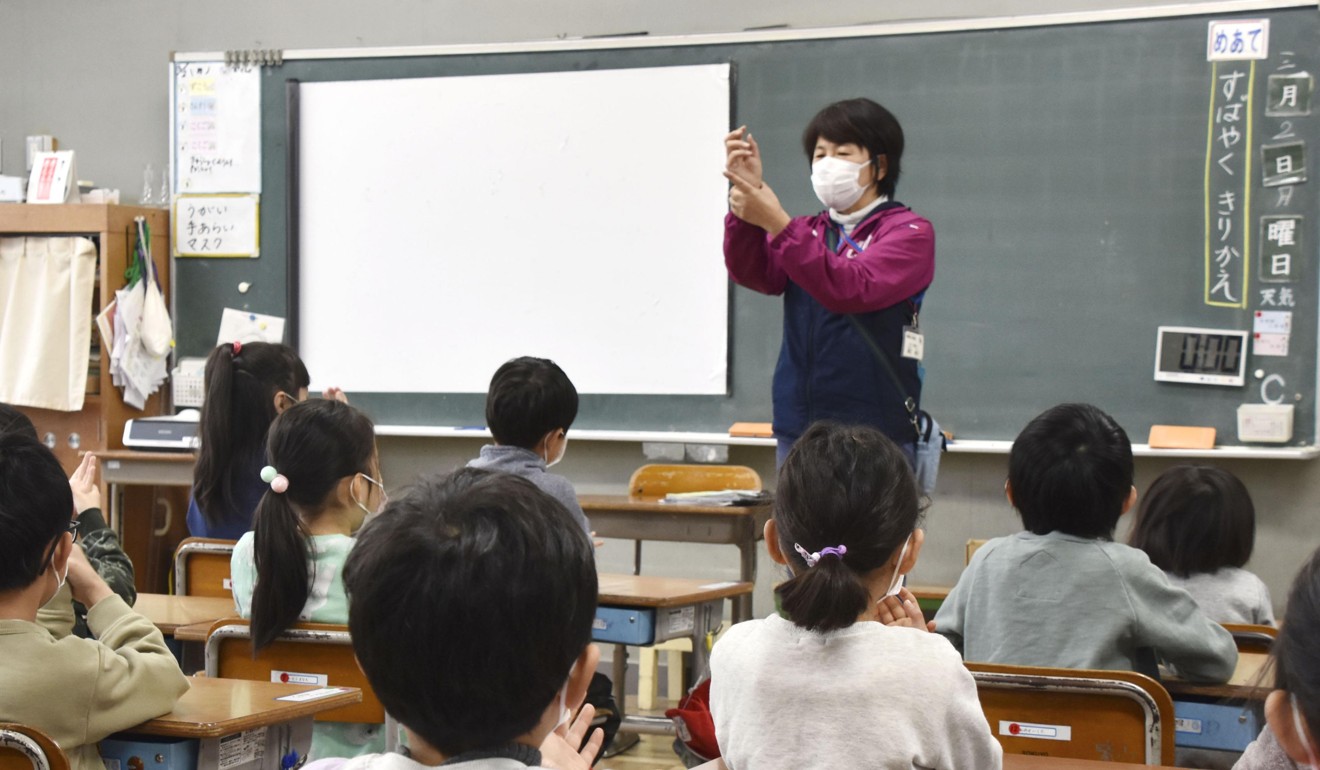
Coronavirus: contagion fears, paranoia reveal cracks in Japan’s polite facade
- Tensions are running high among Japanese, from frantic shoppers panic-buying toilet roll to irate commuters arguing about coughing on trains
- Even school closures, a move made to lessen the outbreak’s impact, have left working parents stressed and unsure of what to do with their children
Last Friday, a video uploaded to Twitter showed a heated confrontation aboard a Tokyo train between a man who appeared to be in his 50s and a younger man who was not wearing a mask and had apparently coughed soon before the footage was recorded.
Virus-hit Japan begins to feel bite of Chinese tourists’ outbreak absence
The older passenger shouted angrily and said the man had to stop coughing. The younger man retorted that he was the one who was acting strangely, which led to a further confrontation as other passengers attempted to intervene.
A few days earlier, a passenger in Fukuoka reportedly pressed a train’s emergency stop button to report that someone who was coughing while not wearing a mask.

“People are really feeling a sense of personal risk and that means that the calm that you usually see on trains and in society in general is being forgotten,” said Ken Kato, a Tokyo businessman.
“You can see it in other areas as well – people are panic buying toilet roll and tinned food because they believed a rumour on the internet or because they saw a neighbour coming home with lots of toilet paper and they felt some sort of pressure to do the same.
“It’s strange that people who are normally so rational do things like this.”
Online, there has been a mix of incredulity and frustration to the way people are reacting. “Japanese people are seriously losing it,” said one poster on the Japan Today news website. Another, pointing to the effect of contagion concerns piled on top of the stress of an already packed commute, noted that “every person has their breaking point”.
Excluding those who were quarantined on board the Diamond Princess cruise ship, Japan has confirmed 274 cases of the coronavirus so far with six deaths. About 77 of these cases have been in the northernmost prefecture of Hokkaido, leading its governor to declare a state of emergency and urge residents to stay at home.
But the actual number of infected people in Hokkaido may have reached as high as 940 last month, more than 10 times the official figure, according to one scientist.
Hiroshi Nishiura, a professor who specialises in statistical modelling of infectious diseases at Hokkaido University’s medical school, said his estimate on February 25 was based on the number of foreign and domestic travellers who had been infected on the island, as well as passenger volume.
“The difference from the reported cases is about tenfold, so it’s likely there are people who only have minor symptoms or have not developed any,” Nishiura told reporters on Monday. “My guess is that many of them are younger people.”
Coronavirus cases on Japan’s Hokkaido island may be 10 times official number
Last week, Japanese Prime Minister Shinzo Abe declared schools across the country would be closed until the end of March because of the virus, describing the coming few weeks as critical in determining whether Japan can control the outbreak.
But many parents are complaining that they are now having to take time off work to look after their children, with the only alternatives being to ask relatives for help or take the children to work – aboard the same trains that are considered a high-risk environment for the transmission of the virus.
Keiko Kobayashi, a senior manager at a multinational staffing service provider in Tokyo, brought her 7-year-old son to the office on Monday.
“I was shocked by the news of the school closures, and thought, what should I do?” she said.
“There was no explanation of how this is going to work.”

Coming near the end of Japan’s academic year, the school closures leave little or no time for the country’s 12.7 million students to sit final exams or attend graduation ceremonies. They are especially tough on single parents or those whose children have disabilities, as nannies and babysitters are uncommon in Japan.
Mika Nakajima, a museum employee and single mother with a 15-year-old autistic son who is sensitive to noise and people around him, said she had already used up all her paid holiday days last year and is on the verge of losing her job.
“I’m desperate, I really cannot lose this job,” said the 47-year-old, who is fearful of not finding another full-time position if fired.
“It’s a difficult time for families with ordinary children, but it’s much harder for those who have children with disabilities or who need attention and care. Some other forms of support are needed.”

Other citizens have been critical of Abe’s government for failing to entirely close Japan’s borders to travellers from China, as other countries did in the wake of the outbreak.
“Even North Korea shut its border with China as soon as the scale of the problem became clear,” said Kato, the businessman. “I don’t think I have ever agreed with a decision taken by the North Korean government before, but on this they were right and Japan should have done the same.
“A lot of people are also unhappy that the government sent thousands of masks to China in the early days of the outbreak, meaning that there is now a shortage here. The government really needs to think of the Japanese people before they start helping other countries,” he added.
Additional reporting by Associated Press and Reuters

